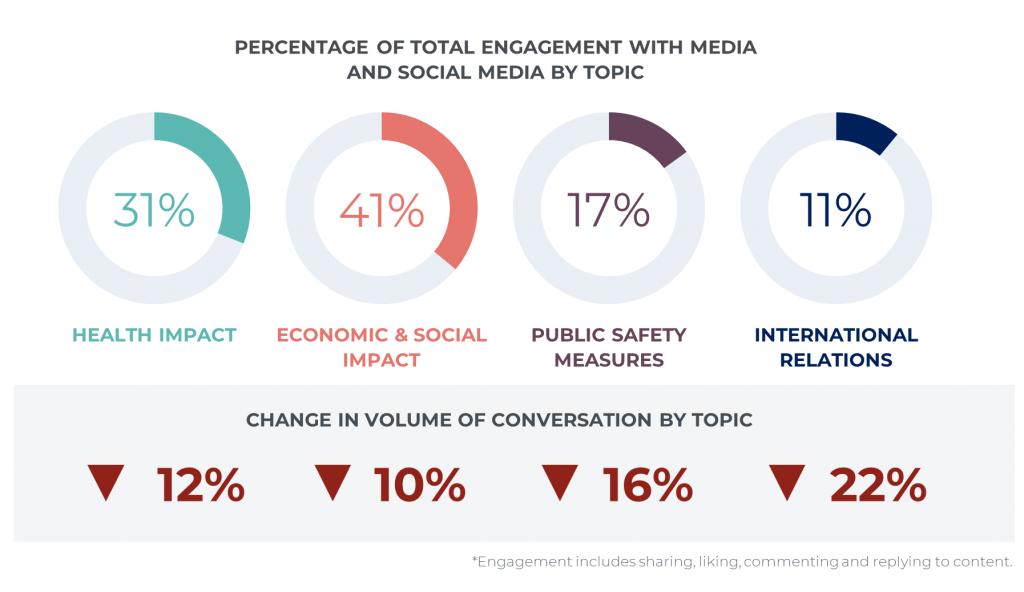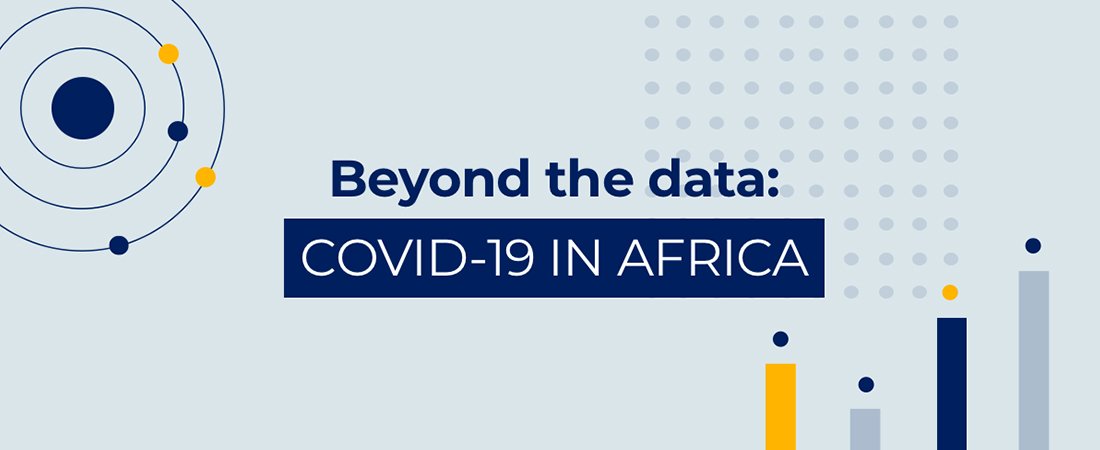As countries become ever more accustomed to living alongside COVID-19, we witnessed an overall slowdown in media and online conversations around the virus.
In the span of a few days, Africa registered a 43 per cent jump in COVID-19 cases. As a direct result of this, the conversation focused on the double burden on countries battling with existing pandemics or other major health challenges.
This week we zoom in on the impact of the COVID-19 on healthcare systems and Africa’s role in the global scientific effort to tackle COVID-19.

World Immunisation Week begins amid great challenges for Africa
The end of April marks World Immunisation Week and vaccines have been at the centre of online discussions in Africa.
Mentions of immunisation increased by almost 10 per cent, generating 120 per cent more engagements than the previous week. Positive sentiment around vaccines increased by 28 per cent, with negative sentiment decreasing by 43 per cent.
COVID-19 overshadowed 2020’s World Malaria Day on April 25, despite malaria’s much higher death toll across the continent. The World Health Organisation (WHO) warned that the fight against malaria in sub-Saharan Africa could be set back 20 years if countries focus all their resources on COVID-19. Preventative malaria campaigns in Chad, Ethiopia, Nigeria and South Sudan have already been suspended, leaving around 21 million children unprotected.
In this worrying scenario, the WHO also urged African governments not to let other issues slide, including the battle against hunger. The World Food Programme’s stark warning that Africa might soon face a famine “of biblical proportions” received significant levels of engagement last week (34K engagements). This food crisis is accentuated by a drop in the incomes of informal workers of 81 per cent in Africa, as the International Labour Organisation warned in its latest report.
Misinformation remains a major setback
News of breakthroughs in the development of drugs and vaccines against the virus continue to attract attention.
In one of the most discussed stories of last week (822K engagements), the BBC reported that a team of researchers at Oxford University would be ready to start human trials for a COVID-19 vaccine in Kenya. Kenyan media was quick to refute these claims.
In Madagascar, President Andry Rajoelina launched a local herbal remedy claimed to prevent and cure COVID-19 last week. The move came under strong criticism from the scientific community, who warned of the potential damage to people’s health from untested “cures”.
Africa’s role in global scientific efforts to tackle COVID-19
African leaders remain at the forefront of global efforts to prevent, diagnose and treat COVID-19.
Last week South African President Cyril Ramaphosa, Rwandan President Paul Kagame and Chairperson of the African Union Commission Moussa Faki Mahamat joined a coalition of world leaders in launching a “landmark collaboration” to fight the pandemic, accelerating the development and distribution of COVID-19 diagnostics and vaccines (39K engagements).
More voices are also bringing attention to exceptional contributions that Africa’s own scientists are making in the fight against COVID-19.
As the continent continues to battle existing health challenges alongside a global pandemic, Africa is developing solutions to COVID-19 that are tailored to its own reality.
Africa cannot be overlooked in the search for innovative solutions to this pandemic – their experience tackling diseases like Ebola, HIV, and malaria is second to none and needs to be recognised.
A closer look elsewhere
Much of the international conversation has focused on how the West needs to support Africa, and it does, but we are seeing innovations in Africa that will benefit the world.
Look at Senegal, where they are receiving international recognition for a laboratory that has used its AIDS and Ebola experience to develop a $1 COVID-19 testing kit.

